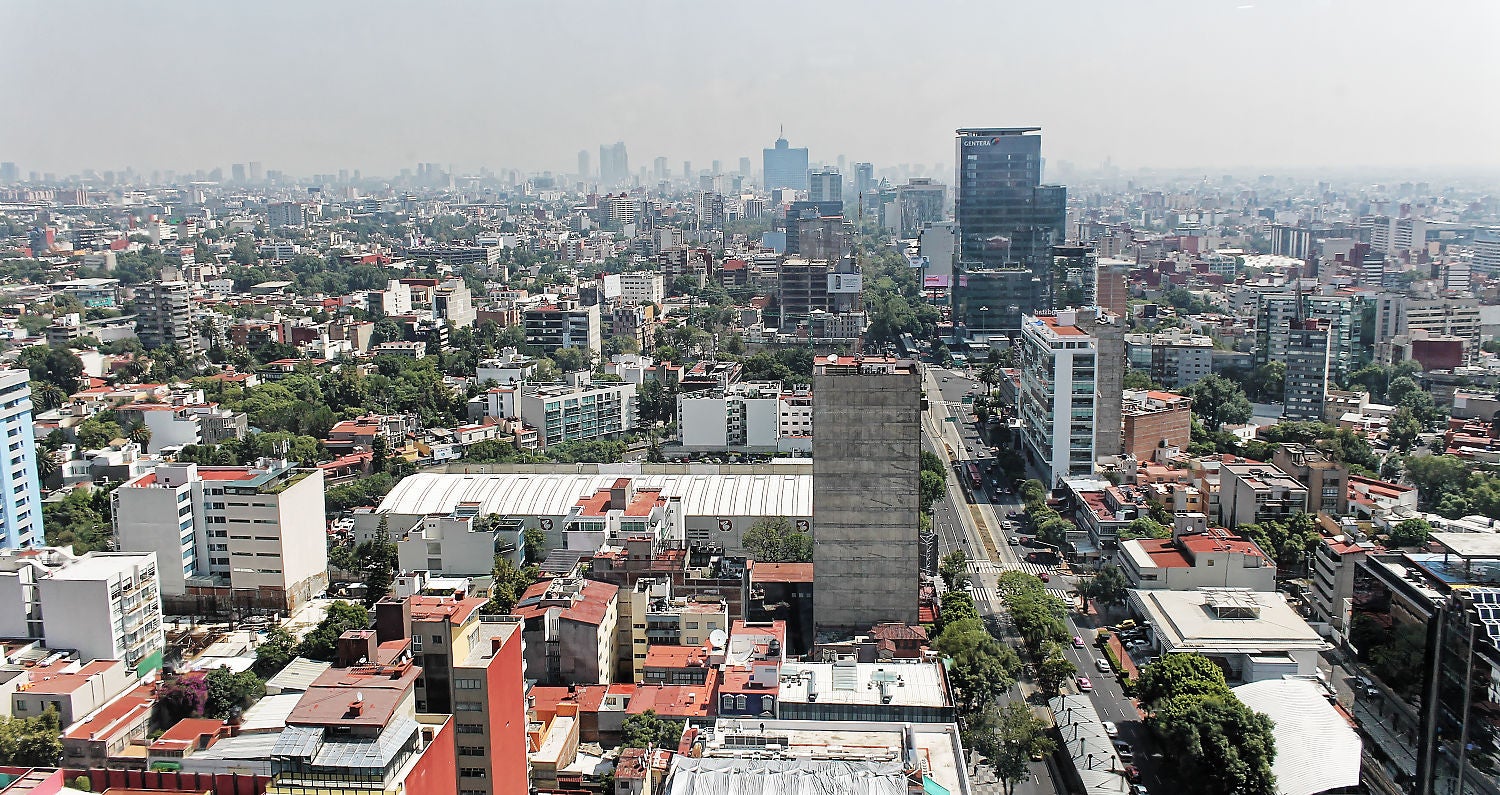 Aerial View of Mexico City.
Aerial View of Mexico City.
From growing informal settlements to sprawling cities and the urgent need for better affordability strategies, it is widely known that Latin America and the Caribbean region is facing significant housing challenges. However, there are best practices to tackle these challenges that should be discussed more.
Here are four critical lessons about housing programs and policies in the Latin American and Caribbean region :
1. A sense of urgency: We need strategies to mitigate the impact of climate change on the housing sector now.
Climate change is having a significant effect on housing goals in Latin America. With rising sea levels, frequent and intense storms, and unpredictable weather patterns, many coastal communities face an increased risk of flooding, erosion, and other disasters. As a result, homeowners and governments are forced to take proactive measures to adapt to these new challenges. Specifically, the region’s vulnerability of informal settlements to climate change is a growing concern. These settlements are often located in high-risk areas, compounded with the need for more infrastructure and services, making it difficult for residents to prepare for and respond to disasters.
Governments across the region are increasing the housing sector’s resilience by scaling the development of green housing and retrofitting housing to ensure the structure can withstand extreme weather events. For example, in Mexico, the National Appropriate Mitigation Action (NAMA) program promotes cost-effective, energy-efficient building concepts in the sector, focusing on low-income housing. In addition, the program provides technical assistance to prominent public housing financiers and housing developers on green housing strategies, as well as financial incentives and project-related technical support for small and medium-sized developers and financial intermediaries.
2. From housing to sustainable urban development: We observe the sector’s transformation towards multidisciplinary approaches.
The housing sector is transforming from focusing on housing provision to a more holistic approach incorporating sustainable urban development. This approach considers the broader social, economic, and environmental impacts of housing. It ensures they are integrated with more comprehensive urban planning and development strategies, such as public transport, public space, and infrastructure development. In Medellin, Colombia, the city’s transformation has been achieved through the design and implementation of integrated urban projects, including investments in housing, transport, and public infrastructure, to integrate previously marginalized neighborhoods into the fabric of the city. In Asuncion, Paraguay, the government is working on ambitious plans to transform the coastal area through better planning and investments in mobility, public space, basic infrastructure, and housing to increase urban, social, and environmental resilience.
3. Socio-urban transformation as a new paradigm: We witness the transition to more sustainable interventions centered and led by the communities.
A new paradigm in the housing sector focuses on community-led interventions. This approach recognizes that communities are crucial in planning, designing, and implementing housing and urban development projects. It involves empowering communities to take ownership of the development process and actively participate in decision-making. Urban upgrading projects in Buenos Aires, Argentina, and Manaus, Brazil, show that community-led interventions create a sense of ownership and pride in the built environment, leading to greater sustainability and resilience of the investments in the long run.
4. Innovation: We need to continue working on innovative planning, green/sustainable housing design, flexible financing mechanisms, and public-private articulation to accelerate results and impact.
Innovation is critical to the housing sector to address the challenges of affordability, sustainability, and inclusivity. The latter involves developing new technologies, materials, and processes to improve housing efficiency, quality, and affordability. It also involves innovative financing mechanisms to make housing accessible to low-income and informal households.
Knowledge exchange is crucial as it helps ensure that best practices, innovations, and lessons are shared across organizations, regions, and countries. Through the program ‘Vivienda Sostenible para Todos,’ we learned four lessons about successful regional and global initiatives and projects, which can lead to improved decision-making, more effective policy development, and more significant innovation in the housing sector.
Further, it promoted collaboration and partnership-building between policymakers and practitioners in the housing sector. By sharing knowledge and working together, we can all build more robust networks and develop partnerships that can be leveraged to address complex housing issues.
To learn more and access the content of the program, click here.
To receive weekly articles, sign-up here
Related articles




Join the Conversation